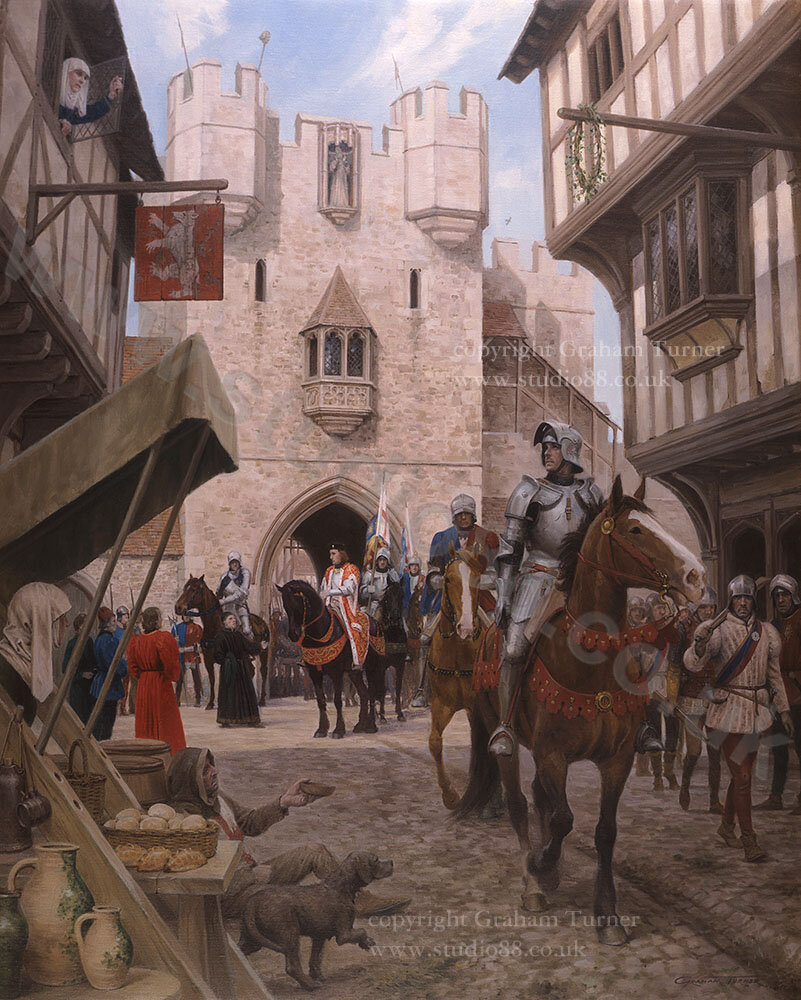May 21st 1471: Arrival in London

The Arrivall
(Graham Turner: Studio 88)
After the long journey from Coventry King Edward’s party arrived in London. His entry procession, with banners flying and trumpets blaring, was like a conquering emperor’s. His brother, the Duke of Gloucester, led the procession. At the rear, in a carriage, was Margaret of Anjou, no longer Queen Margaret. There were duties to perform, and rewards to give to those who had defended London, and Edward’s family, against the rebels. The ‘Arrivall’ describes the arrival:
The King this season, well accompanied and mightily with great lords, and in substance all the noblemen of the land, with many other able men, well arrayed for the war, to the number of xxx M horsemen, came to the city of London, soon after the dispersing of the Kentish host, the xxj. day of May, the Tuesday; where he was honourably received of all the people, the mayor, aldermen, and many other worshipful men, citizens of the said city. At the meeting of them the King dubbed Knights the mayor, the recorder, divers aldermen, with other worshipful of the said city of London, which as had manly and honourably acquit them self against the bastard, and his cruel host; honouring, and rewarding them with the order, of his good love and grace, for their true acquittal, and as they had right well and truly deserved that time.
King Henry, prisoner in the Tower of London, died soon after Edward’s arrival. Most commentators say that he died, or was murdered, on May 21st. The Arrivall, though, giving King Edward an alibi, puts his death two days later, saying that when he learned what had happened at Tewkesbury he took it so badly that he died of pure displeasure and melancholy. The likelihood is that he was murdered on May 21st. There was some indignation. The Croyland Chronicler wrote ‘May God spare and grant time for repentance to the person, whoever he was, who thus dared lay sacrilegious hands upon the Lord's anointed! Hence it is that he who perpetrated this has justly earned the title of tyrant, while he who thus suffered had gained that of a glorious Martyr’.
Sforza da Bettini had no doubts. He wrote to Milan that ‘King Edward has not chosen to have custody of King Henry any longer… He has in short chosen to crush the seed’ His body was taken to St Paul’s, to be exhibited.
Margaret of Anjou was now interned in the Tower in his stead, at the King’s pleasure.


No comments:
Post a Comment